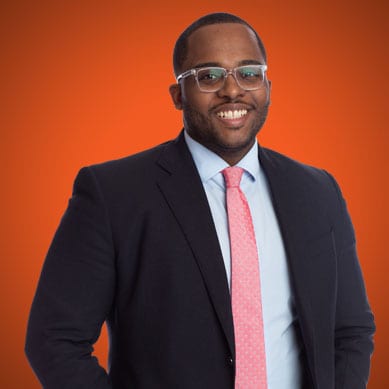Kevin Wiley, Jr., is a PhD student in Health Policy and Management at Indiana University’s Richard M. Fairbanks School of Public Health. He is a part of the Health Policy Research Scholars Cohort 2018.
Before we begin, tell us a little bit about yourself and what your research interests are.
I am a T15 Biomedical Informatics and Data Science Fellow through the National Library of Medicine at the National Institutes of Health. The major thrust of my research is understanding patient information and health care access using tools like patient health portals and telehealth modalities. Importantly, I am interested in assessing the digital divide in accessing patient health information among racial and ethnic populations, and how that might impact access and health outcomes.
What’s the story behind why you’re doing what you’re doing?
My family, immediate and otherwise, has struggled with preventable chronic health conditions that have been either disabling or fatal. I strongly believe that access to health information in abundant measure prevents and/or delays the onset of chronic disease. People of color are at a disadvantage in accessing health information due to lack of Internet access, skepticism of technological tools and platforms, health illiteracy, and socioeconomic challenges. I plan to explore these systemic challenges in health care and provide evidence-based solutions to help people of color become better self-managers of their own health.
Tell us about a project you are currently working on that you are excited about.
I am currently working on projects that utilize informatics methods to examine narrative and form-based patient health data to make associations with patient health care outcomes. This research is exciting because it seeks to develop new approaches to documenting, retrieving, and sharing patient health information, which may increase clinical efficiency, reduce coding errors, and improve health outcomes.
For people unfamiliar with your research area, what is one piece of information you think is important for them to know?
Valuable patient information and health care tools are available to you to improve your overall health—I seek to ensure that you don’t have to jump through hoops to access these resources.
Who is a researcher you admire and why?
I admire my mentors in the Richard M. Fairbanks School of Public Health at Indiana University and colleagues working in the health informatics policy space around the country. Our faculty, specifically my mentors, Dr. Joshua Vest, Dr. Nir Menachemi, Dr. Chris Harle, and Dr. Brian Dixon, have produced seminal health information exchange (HIE) research that has informed how large health information organizations conduct and optimize exchange in places like New York and Indiana. Health information exchange is still a relatively new phenomenon, but their research has laid the foundation for understanding and evaluating HIE across the country. Additionally, they place a high value on world-class mentorship in the public health and informatics programs.
How has being an HPRS Scholar helped you during your time as a doctoral candidate?
The HPRS program has been an invaluable experience that has provided me access to phenomenal people and resources that have improved my approach to developing research questions. This is especially true as I consider research questions in the context of health information technology policy. Importantly, HPRS has reinforced the idea of considering policy relevance in research in a way that humanizes scholarly literature beyond data points. I have learned that poor evidence could have a costly influence on policy development that may negatively affect the lives it is intended to benefit.
In the RWJF HPRS program we have worked with you to help you think further about using your research to develop policy. If you could use your research to change any policy, what policy would it be?
The Health Information Technology for Economic and Clinical Health (HITECH) Act of 2009 that was part of the Stimulus bill was rife with issues that have ballooned into major health information access problems presently. I would ensure that information is shareable in a secure way to ensure that patients from underserved populations make well-informed decisions on their health care. Particularly, I would make sure that information blocking, which limits information exchange between health care organizations, is banned to ensure seamless information sharing to improve patient health outcomes.
Ok, here’s a fun question to wrap things up. If you had a talk show, who would your first three guests be?
My first three guests would be the following:
Frederick Douglass
President Barack Obama
James Baldwin

